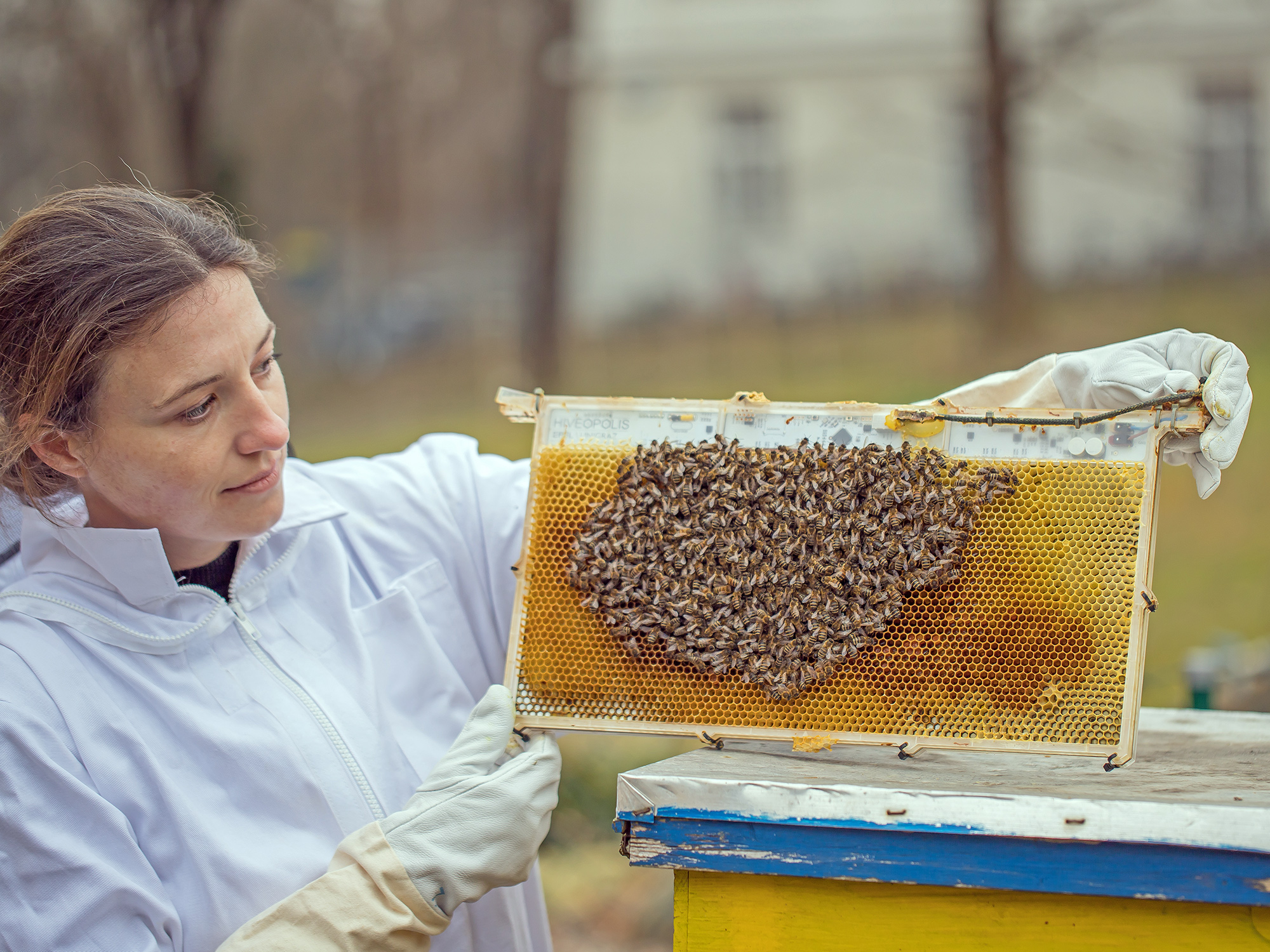One third of bee colonies tend to die during the winter months, often because they lack the necessary warmth to survive. A new joint development by the team of the Artificial Life Lab at the University of Graz and the Swiss École Polytechnique Fédérale de Lausanne (EPFL) has created a unique honeycomb: It is equipped with innovative technical know-how to monitor the bee colony in the cold season, to actively guide it from the outside and to support it in overwintering through additional heat supply. In addition, this high-tech honeycomb provides insights into the behavioural and social unknowns of the bee world that were previously inaccessible to us humans.
The novel honeycomb not only enables protecting colonies from winter death, especially at a time when it is almost impossible for the beekeeper(s) to open the hive because of the threat of a detrimental heat loss for the colony. It also provides first-time insights into the interior of the so-called "winter cluster" of honeybees, as the formation of the bees in the hive is called during the cold months. This enables basic biological research that can provide important insights into the behaviour of social insects during the overwintering phase.
Hightech with remote control
A new type of honeycomb was jointly developed, which is equipped with a comprehensive sensor and actuator field, a technology derived from robotics. This robotic device can monitor the health of the bees on a 24/7 regime. If the bees are detected to be in danger, they can be redirected to honey-rich areas, for example, or supported by targeted additional heat supply. This is done without disturbing the bees in the hive; even in the depths of winter, hives that are snowed in can be remotely monitored and even remotely controlled by mobile phone or computer. The robotic field in the honeycomb makes it possible to "remotely" supply heat to the hive in a targeted and precise manner, thereby guiding the bees on the honeycomb, as they need places with specific temperatures in order to survive and therefore stay or move there. This makes it possible to supply heat to weak colonies during cold spells, thus saving them from winter death. An imminent temperature collapse can be automatically detected by the sensors and the beekeeper can be warned by text message in order to initiate countermeasures remotely and in due time.
About Hiveopolis
Within the framework of the project Hiveopolis, directed by Thomas Schmickl, the researchers of the Artificial Life Lab at the University of Graz and the Mobile Robotic Systems Group at EPFL have joined forces to support the western honeybee throug technology in such a way that it can face a safer future in times of global species extinction. The project is funded by the EU with seven million Euros for five years and runs till 31 März 2024. Further partners are Université Libre de Bruxelles, Freie Universität Berlin, Bee Smart Technologies Sofia, Latvijas Biozinatnu un Tehnologiju Universitate as well as Humboldt-Universität Berlin.
